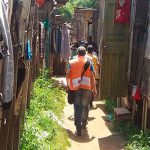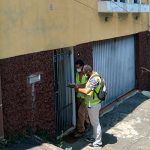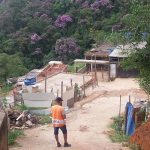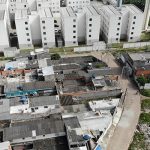The removal of families
By: Liana Becocci / Folha do Condomínio
The heavy rains that have hit Rio de Janeiro in recent weeks have revealed how much government omission in relation to the disorderly occupation of land can cost. The problem is not exclusive to the State of Rio de Janeiro. Irregular buildings (both low-income and upper-middle-class homes), many located in areas of risk or environmental protection, are part of the urban landscape in all Brazilian regions.
São Paulo, the country’s main metropolis, has around 16% of its population residing in informal subdivisions, according to a 2008 survey by Fundação Seade. There are more than 1.7 million people, almost the same as the population of capitals like Porto Alegre, Curitiba, Recife and Manaus, where the problem also exists and is serious.
As in similar episodes, public authorities in Rio de Janeiro announced ambitious plans to remove families living in condemned areas. The task will not be easy, and the rulers are aware of this, so much so that they tend to avoid this action because they consider it unpopular.
Social tensions can, in fact, result from the displacement of people, as well as the loss of established community ties, employment and cultural goods. However, these negative impacts can be mitigated through effective social monitoring and processes that ensure the effective participation of the community. It is the so-called social management, which seeks to ensure removal with dignity.
Experience confirms that the compensation for resettlement carried out on these bases compensates for possible costs, whether social or political. The first benefits are the improvement in the quality of life of that population from the point of view of living conditions; the legal regularization of the situation of the families, allowing a broad social insertion, mainly when the displacement is accompanied by the integral urban planning of the new area, with guarantees of access to services of sanitation, transport, health etc.
Another positive point is the possible generation of work and income during the works, a benefit that can be extended to nearby communities. This whole process creates conditions to prevent new clandestine occupations from establishing themselves.
After the tragedy in Rio de Janeiro – and others that preceded it, such as Morro do Baú, in Santa Catarina, and Jardim Pantanal, in São Paulo, just to name a few more recent ones – it is clear that the State is not more can ignore the problem of irregular occupation. Resettlement presents itself as an immediate viable solution for reducing the social and urban vulnerability of the victims, however, we must remember that the definitive and structural solution to the problem involves efficient management of land use and more effective social policies .
*Liana Becocci is an engineer and director of Ieme Brasil, a consulting engineering company, with ISO 9001/2000 certification in Social Management and consolidated experience in numerous works carried out for the municipalities of São Paulo and Suzano, Dersa (Road Development), CDHU (Company Housing and Urban Development), among other clients.
Read more

Next to SEHAB IEME Brasil started a new contract with the São Paulo Municipal Housing Secretariat (SEHAB) to provide specialized services in the area of urban development. It is worth remembering that the... 
Cidade Legal – Lot IV IEME provided technical support to 79 municipalities, totaling 630 housing centers served. Leading role in complying with the new land regularization legislation (Law 13,465/17). Preparation of... 
Mapping of the neighboring community around the works on Line 6 – Orange of the São Paulo Metro IEME worked along the stretch of 13 construction units for the works on Line 6 – Orange of the São Paulo subway. Assembly of a specific database, aiming to meet the needs of the Contracting... 
SEHAB – Registration IEME is a pioneer in carrying out the registration of families using the Habisp and HabitaSampa municipal system. Performance in all regions of the city of São Paulo and in different types of... 
Support for the implementation of housing policies in the municipality of Suzano IEME develops research and qualitative reports on the areas where it operates. Development and application of activities monitoring and evaluation actions. Elaboration and implementation of a...
